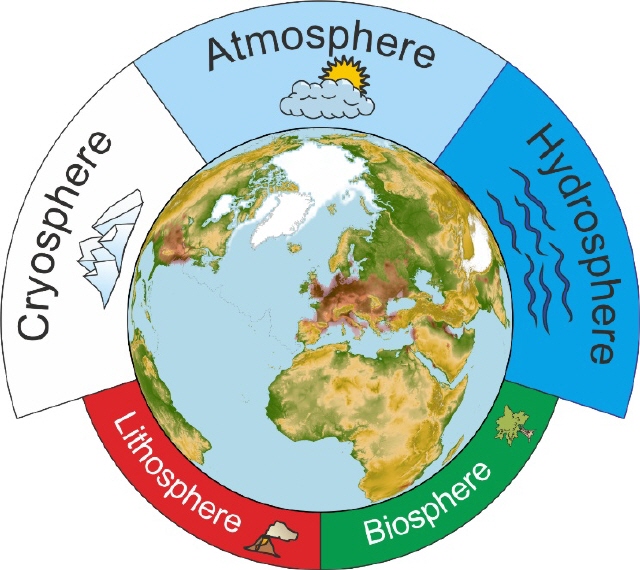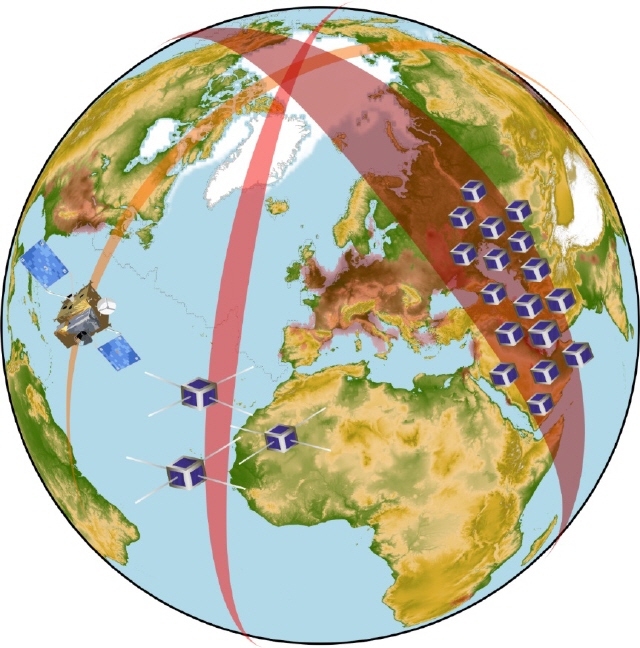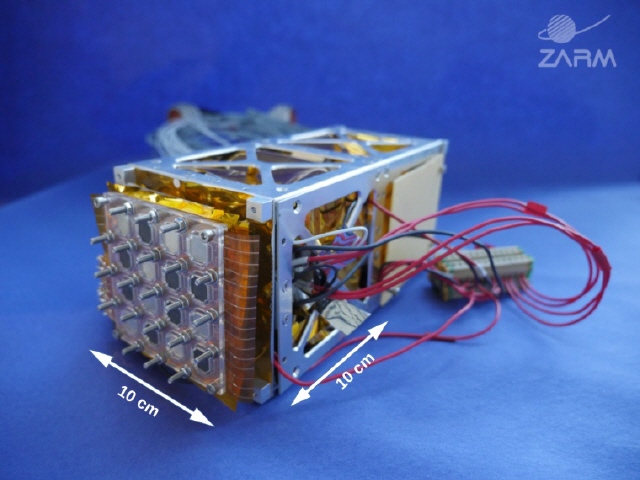New Collaboration Initiative:

ADVANCING EARTH OBSERVATION SCIENCE (AEOS), ENVIRONMENT, CLIMATE CHANGE AND SATELLITE SWARMS
The complexity of the environmental system on Earth requires a coordinated approach of various scientific disciplines. Based on successful collaborations in the past, the initiative Advancing Earth Observation Science (AEOS) has been established to assess the relevant physical, chemical, and biological processes by joining the expertise of different partners from the University of Bremen and worldwide. Special focus is placed on investigations to quantify the impact of human activity on the Earth system and to separate it from natural effects.

The first research aim of AEOS will be to exploit Earth observation data from existing and forthcoming satellite missions to derive accurate knowledge about changes in pollutant fluxes, ocean circulation, ice extent and thickness, for example. The knowledge gained will then be used to test and significantly improve Earth system models.
The second research aim of AEOS is the development of the technology required for the use of CubeSat swarms in Earth observation. This necessitates research on miniaturised sensors, electronics for space and swarm-based measurement methods. CubeSats will provide data with significantly higher spatial resolution and temporal sampling to better assess local changes in the environment and climate.
In addition, a third and long term aim of AEOS is to develop and fly a swarm mission with CubeSats as a proof of concept demonstrator for future Earth observation.

The AEOS collaboration is led by the Institute of Environmental Physics (IUP) at the University of Bremen, which has more than three decades of experience in the development and use of remote sensing techniques from ground stations, ships, aircraft and satellite platforms. IUP has pioneered remote sensing of atmospheric composition (e.g. pollutants, greenhouse gases) with the IUP-led GOME and SCIAMACHY projects. Data from these missions provided the scientific basis for the development of parts of the ESA/EU Copernicus programme, i.e. Sentinel-4, -5P and -5 missions.Furthermore, IUP has internationally recognised expertise in oceanography, e.g. regarding the energy transfer between oceans and the atmosphere and the investigation of the origin and consequences of “arctic amplification”.
- IUP and the Alfred Wegener Institute (AWI) have unique expertise and a long collaboration in the remote sensing of the cryosphere and polar regions.
- The German Aerospace Center - Institute of Atmospheric Physics (DLR-IPA) and IUP join their experience in Earth system modelling.
- Expertise in global scale glaciology is provided by the Institute of Geography.
- The Center of Applied Space Technology and Microgravity (ZARM) at the University of Bremen is an internationally recognised research centre. The research at ZARM ranges from fundamental questions in theoretical and experimental physics to the development of technologies for space missions and microgravity experiments.
- The DLR Institute of Space Systems (DLR-ISS) and the Faculty of Mathematics/Computer Science researches novel architectures for the on-board processing in miniaturised satellites and is also investigating the use of commercial off-the-shelf hardware and advanced software for achieving memory efficient data collection.
- The German Research Center for Artificial Intelligence Bremen (DFKI Bremen) and the Faculty of Mathematics/Computer Science have internationally recognised expertise in the design and operation of autonomous systems and electronics for space.
- The Institute for Telecommunications and High-Frequency Techniques (ITH) has proven experience in research to advance wireless technology. ITH has provided solutions for challenges such as high data rate, massive and low latency communications in the design of mobile communications systems.
- The Institute of Electrodynamics and Microelectronics (ITEM) has expertise in the design of systems and circuits for communications and signal processing.
- The Center for Industrial Mathematics (ZeTeM) at the University of Bremen has excellent knowledge in orbit optimisation, autonomous manoeuvring and mission simulation and brings in mathematical expertise in retrieval theory, feature representation and machine learning.
- In the AEOS initative, the expertise of ZARM, IUP, and DLR-ISS in developing sensors and constructing satellites will be complemented by that of the local industrial partners OHB and ZARM Technik. OHB is a worldwide leader in the development and operation of Earth observation satellite systems. AEOS expertise will be enhanced by cooperation with partners from the University of Jena (biosphere and big data), the University of Maryland (biogeochemistry), York University (EO satellites), and the University of Southampton (multiobjective optimisation).

